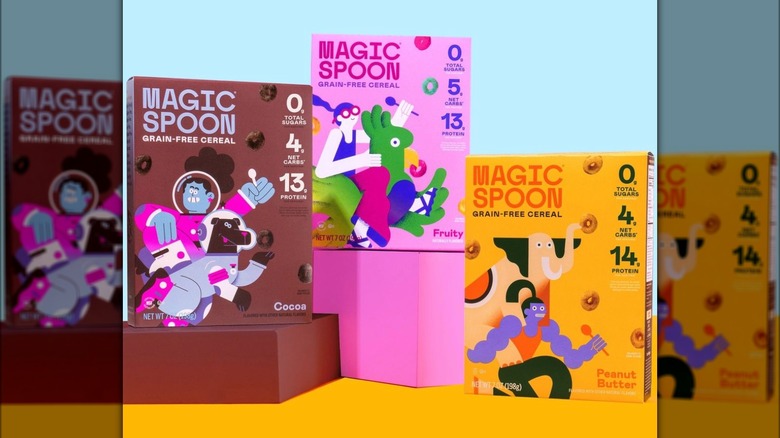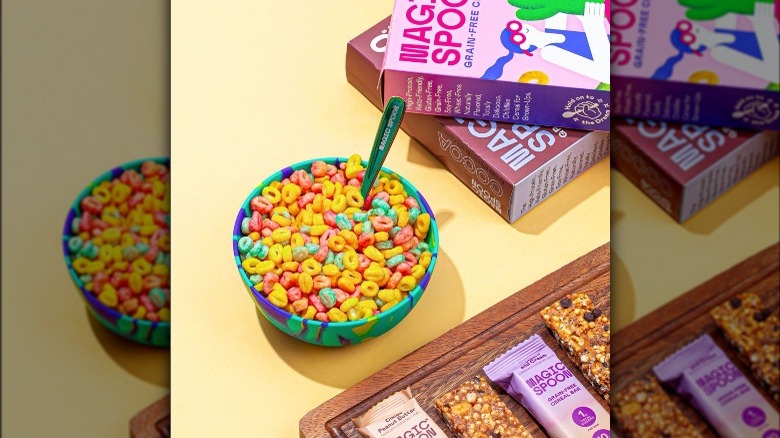Here's How Magic Spoon's Popularity Exploded
We may receive a commission on purchases made from links.
Cereal always will be a classic breakfast item, but as people get older, Frosted Flakes and Froot Loops aren't usually part of their typical rotation. This is because much of the marketing for these cereals is targeted towards children through television and social media, according to an article by Yale University. In addition, many of these cereals contain added sugars, which more adults are trying to avoid (via Healthline).
A startup cereal company called Magic Spoon wanted to provide an alternative to these nostalgic cereals that didn't sacrifice taste for healthy eating. Founded in 2019, the brand was the brainchild of founders Gabi Lewis and Greg Sewitz. Both men loved cereal as kids, but started to avoid it as they became more health-conscious as adults (via Force Brands). Thus, they created Magic Spoon, a gluten-free, grain-free cereal that had 12g protein and 3g net carbs per serving.
Since the brand's start three years ago, its products are now available in several big-name retailers, including Target and Walmart. But how exactly did the company grow so quickly?
Social media marketing was key
Just as cereals such as Cinnamon Toast Crunch target their audience through television ads, Magic Spoon has found its success through social media marketing. Specifically, the Brooklyn-based startup explored working with podcast hosts. It began collaborating with social media stars such as Lexi Hidalgo, who had previously promoted Magic Spoon on her podcast.
The 21-year-old also has a massive following on TikTok, and largely posts about health, wellness, and lifestyle topics for those her age. The demographic of Hidalgo's followers is exactly who Magic Spoon wanted to reach — young adults who are health-conscious, but enjoy cereal. The company also has an affiliate program, where members can make 20% commission for every purchase made through their link. According to YoYoFuMedia, by working with influencers and affiliates, Magic Spoon has been able to capture audience attention with their pricier cereal.
The company also makes sure to cast their net far and wide, and generates Facebook ads that frequently compare their products' amount of macronutrients to competing brands. Magic Spoon's growth story is a first-hand example of how successful a new food company can be if they choose to grow on social media, and how much fans trust their favorite influencer's word.

